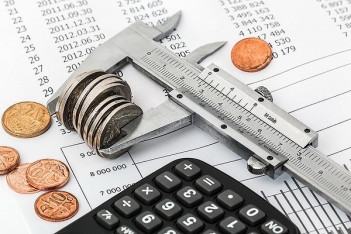Write-off of bad debts
Writing off bad debts is an important procedure for any enterprise that is faced with outstanding debts from counterparties. It allows you to avoid excessive burden on financial statements and helps to bring the company's balance sheet into line with the real situation.
However, the process of writing off debts requires knowledge of the intricacies of the law and correct documentation in order to avoid possible legal consequences. In this context, an important role is played by a qualified lawyer who will help to competently carry out the procedure in accordance with the norms of the law.
Legal stages of writing off bad debts
Each of these steps is critically important in order to ensure the correctness of the registration and avoid legal errors:
- Preliminary consultation. Consultation with the client to determine the amount of debt and its hopelessness.
- Collection of information and documents. Collection of all necessary documents and information to prepare for debt write-off.
- Preparation of documents. Preparation of a package of documents for writing off bad accounts receivable and bad accounts payable. Preparation of a tax invoice for writing off accounts payable (sample).
- Making accounting entries. Making the necessary accounting entries to write off bad debts.
- Preparing a report. Drawing up a debt write-off report and submitting it to the tax authorities.
Following the step-by-step process of providing a service for writing off bad debts allows you to minimize the risks of errors and ensure that all documents comply with the requirements of current legislation. Qualified assistance at each stage guarantees the successful completion of the procedure, which allows the enterprise to clear its financial indicators of bad debts.
Terms of providing the service of writing off bad debts
This service is provided only under certain conditions, which include:
- Availability of documents confirming the bad debt (court decisions, reconciliation reports, documents on the counterparty's liquidation, etc.);
- Inability to collect the debt by all available methods;
- Client's consent to the write-off procedure;
- Provision of all necessary information and documents for the write-off procedure.
Providing appropriate conditions is the basis for the successful conduct of the bad debt write-off procedure. Without providing all the necessary documents and confirming the impossibility of collection, the procedure cannot be performed properly, which may lead to legal complications.
Assistance of a lawyer in writing off bad debt
The lawyer acts as a key specialist in the process of writing off bad debts, as he has a deep understanding of legal aspects and the ability to correctly assess the hopelessness of the debt. An important part of his work is providing advice on issues that may arise during the write-off, in particular regarding the correctness of document flow, compliance with legal requirements and procedures that minimize risks for the client. He also assists in formulating the necessary documents and in choosing the most effective ways to solve the problem.
Correct legal registration of all stages of writing off bad debts is the key to avoiding further legal consequences for the company. The specialist carefully checks all the documents provided, ensures that the accounting transactions carried out comply with tax requirements, and even provides legal support in case of need to appeal a court decision or interact with tax authorities. His expertise allows you to effectively protect the client's interests and minimize financial and legal risks in the process of writing off debts.
Business support in the process of writing off bad debts

Optimization of financial costs: Writing off bad debts helps reduce the financial burden on the company, getting rid of obligations that cannot be collected.

Maintaining a positive reputation: The process of writing off provides the company with the opportunity to continue cooperation with other partners without fear of negative consequences.

Tax benefits: Correct writing off bad debts allows you to optimize tax liabilities. Thanks to this, the business can use legal methods to reduce tax payments.
Frequently asked questions about writing off bad debts
Question
What is write-off of accounts receivable and in what cases is it used?
Answer
Write-off of accounts receivable is the process of removing from the balance sheet of an organization amounts that it cannot collect from debtors. This is used in the case of bad debts, when all possible collection methods have been exhausted.
Question
What transactions are required to write off bad debt?
Answer
Transactions to write off bad debt include debiting account 60 (Settlements with suppliers and contractors) and crediting account 91 (Other income and expenses). It is important to take into account the tax consequences of such a write-off.
Question
How are accounts receivable written off in a budgetary institution?
Answer
Accounts receivable are written off in a budgetary institution based on the order of the manager. A sample order can be found in the relevant regulatory documents. An act of write-off of accounts receivable is also drawn up.
What determines the cost of the bad debt write-off service?
The cost of the service varies depending on the specifics and complexity of a particular case, which are determined by the following factors:
- Volume and complexity of debt. The first and most significant factor is the volume and complexity of debt. The larger the amount of accounts receivable and the more complex the structure of accounts payable, the higher the cost of the service. This is due to the need for a more thorough analysis and preparation of relevant documents, such as an act of writing off accounts receivable or an order to write off accounts payable.
- Legal and tax aspects. The process of writing off accounts receivable includes many legal and tax aspects. For example, writing off accounts receivable of budgetary institutions requires a special approach, taking into account specific legal provisions. Similarly, when writing off bad accounts payable, transactions must be made taking into account all tax consequences, including VAT.
- Need for an audit. If an audit is required to write off the debt, this also increases the cost of the service. An audit may be necessary to confirm the hopelessness of the debt and justify its write-off in accounting.
- Documentation. The cost of the service may depend on the amount of work on documentation. For example, preparing a sample order to write off accounts receivable, write-off acts and other necessary documents takes time and a professional approach. This is especially important for budgetary institutions, where each procedure must be strictly regulated.
- Professional qualifications of specialists. The experience and qualifications of the specialists providing the service also play an important role in determining the cost. Highly qualified specialists with experience in writing off accounts receivable and payable can provide higher quality and faster services, which, accordingly, is reflected in their price.
Each factor, from the volume of documents to the qualifications of the specialist, can affect the price, which ultimately ensures a high level of professionalism and accuracy in the procedure.
ConclusionProper write-off of bad debts not only improves the company's financial performance, but also reduces the risks of legal conflicts in the future. With the help of a legal specialist, you can avoid errors in document preparation, guarantee the correct implementation of all necessary procedures and ensure the legal purity of the process. As a result, the company will be able to effectively and safely complete cases with debtors, preserving its reputation and complying with legal requirements.




































